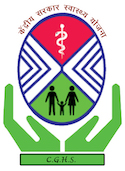Polycystic kidney disease or PKD is a genetic disorder characterized by the development of the clusters of cysts in the Kidneys. Cysts are fluid-filled, non-cancerous, and round sacs that interfere with the ability of the kidneys to filter waste products from our blood. As the cyst grows. It changes the shape of the kidneys. With time, the kidneys enlarge; lose its function and leads to kidney failure.
Facts on Polycystic Kidney Disease
- Polycystic kidney disease is one of the most common genetic diseases.
- It is a life-threatening inherited disease.
- Patients with PKD at once can have thousands of cysts in their kidney.
- Kidneys filled with a cyst may weight up to 30 pounds.
- Autosomal dominant polycystic kidney disease is the most common form. On the other hand, autosomal recessive PKD is very rare.
- PKD is a chronic disease and lasts for many years or lifelong.
- Kidney failure occurs in most of the patients suffering from this disease.
- Polycystic kidney Disease main occurs equally in both females and males and across all ethnic group.
- Patients with PKD develop a cyst in both kidneys, but the development of the cyst may start earlier in one kidney.
- Depending upon the type of PKD, it may appear at any age.
- If detected early leads to a better treatment option
Types of polycystic Kidney Disease
There are two types of Polycystic kidney disease:
1. Autosomal dominant polycystic kidney disease (ADPKD) – It is the most typical type of PKD affecting about 1 in every 400 to 1000 people across the globe.
Autosomal dominant PKD requires just one parent with the mutant gene. Patients with ADPKD develop cysts not only in their kidney but also in other organs such as pancreas and liver. There is 1 in 2 chance that the affected parent will pass the mutant gene on to their children. Cysts are detected between age18-35 and in later life leads to kidney failure.
2. Autosomal recessive PKD (ARPKD) – Autosomal recessive PKD is less common. It requires both parents with a genetic mutation.
There are four types of ARPKD:
- Perinatal form – present at birth.
- Neonatal form – occurs within the first month after birth.
- Infantile form – occurs between 3-12 month
- Juvenile form occurs after the child is one year old.
* Many people with age may develop simple kidney cysts that are not inherited and do not require any treatment.
Symptoms of Polycystic Kidney Disease
As there are two types of polycystic kidney disease, let us discuss their symptoms separately.
Symptoms of autosomal dominant polycystic kidney disease
In the early stages, the patient of ADPKD may not show any signs. The kidney cysts in such patient start forming in childhood, but the size of the cysts are almost invisible to detect. The cysts grow slowly and over the years to the extent and are identified by renal ultrasound.
*In some patients with no symptoms, ADPKD is detected accidently when they have X-rays for other reasons and later on confirmed through screening with the positive family history.
Such patients may show early signs of chronic kidney diseases such as:
- High blood pressure
- Abnormal urine
- Abnormal kidney function blood test.
The symptoms of ADPKD develop between 30 to 40 years of age. However, in some patient, the symptoms may even appear later.
The symptoms of autosomal dominant polycystic kidney disease include:
- High blood pressure
- Polyuria – Need to pass urine often.
- Nocturia – More urine during the night
- Hematuria – Blood in urine
- Pain in the sides or back
- Painful and enlarged abdomen
- Kidney stones
- Urinary tract infection
- Reduced kidney function
- Kidney failure – Most of the patient with PKD have kidney failure by 60 years of age. In some patients, kidney failure can be in later age.
Other complications of ADPKD include:
- Hernias
- Abnormal heart valves
- Cysts in the liver and other organs
- An intracranial aneurysm that means weak spots are present in the blood vessels of the patient’s brain.
Symptoms of Autosomal Recessive Polycystic Kidney Disease
ARPKD is typically a childhood disease and is diagnosed soon after the child is born.
Sign and symptoms of ARPKD includes:
- Due to the reduced fluid, that surrounds the baby in the uterus.
- Difficult or delayed childbirth
- Heart and lung defects
- High blood pressure
- Swollen abdomen due to enlarged liver, kidney and spleen
- Anaemia
- Blood in urine
- About 30% of infants suffering from ARPKD die within a week after they are born.
- The infant who survive birth develop a breathing problem and may die.
- If such child survives, complications such as below-average weight gain and growth, high blood pressure, liver problems and kidney failure develop in them.
Causes of Polycystic Kidney Disease
The cause behind PKD is a genetic mutation. Gene mutation is inherited from one or both the parents. If you have a blood relative suffering from PKD, you are more likely to develop this disease.
Inheritance Chances:
- If you carry the genes that cause PKD, but you do not develop this disease, you are a carrier. When both the parents are a carrier that causes ARPKD then chances of developing ARPKD is:
25% chance that the child will be born with ARPKD
50% chance of a child being a carrier
25% and of neither being a carrier of the gene nor to develop ARPKD.
- If one parent suffering from ADPKD, then chances of developing ADPKD in the child is 50%.
- If both parents have ADPKD, their child will develop this disease.
- However, sometimes a genetic problem that causes autosomal dominant polycystic kidney disease can also happen on its own. It is ‘spontaneous’ where neither parent have PKD but child is born with it. Chances of such type of case is 1 out of 10.
How Polycystic Kidney Disease Occurs
Due to genetic mutation, a large number of fluid-filled cysts develop in both the kidneys. These cysts take the place of healthy kidney tissue. These cysts keep on growing consistently and replace the entire tissues of the kidneys. As a result, the kidney enlarges and finally leads to kidney failure.
Western medicine, to date, has found no treatment plan to prevent or cure PKD.
Ayurveda works on the root cause of the disease and has the potential to cure the disease. In addition, Ayurveda treatments and therapies rejuvenate and restore the entire health of the kidneys.
You can book online consultation, our team will share the details about the consultation and required reports.













